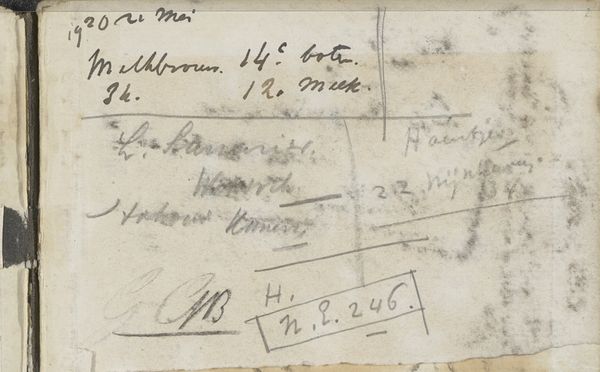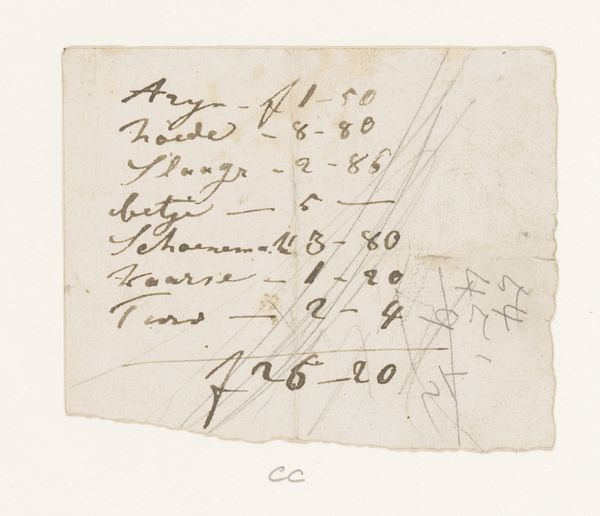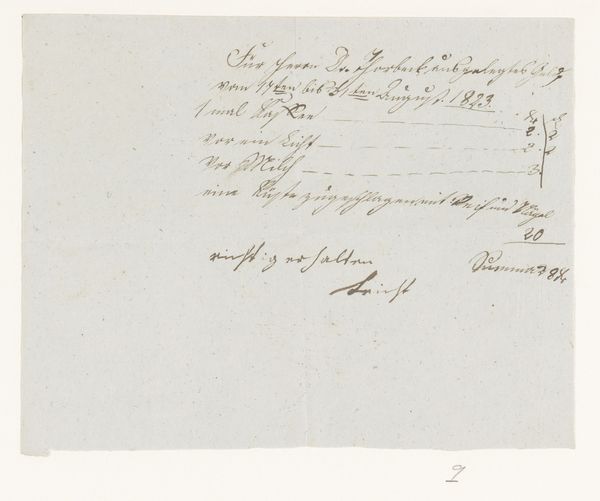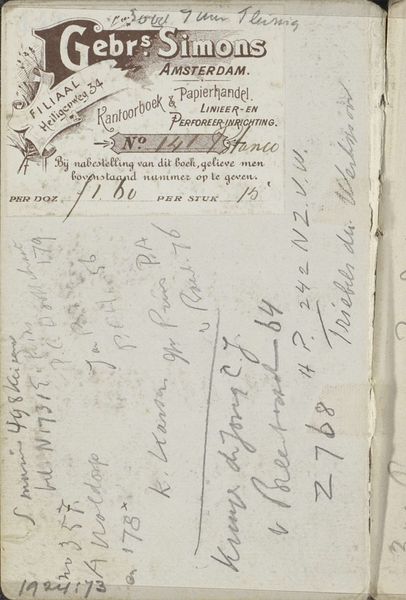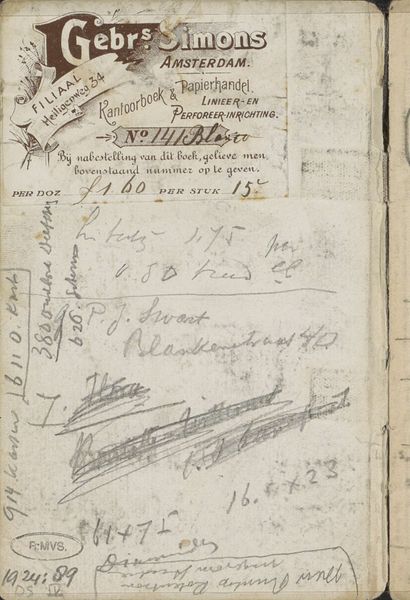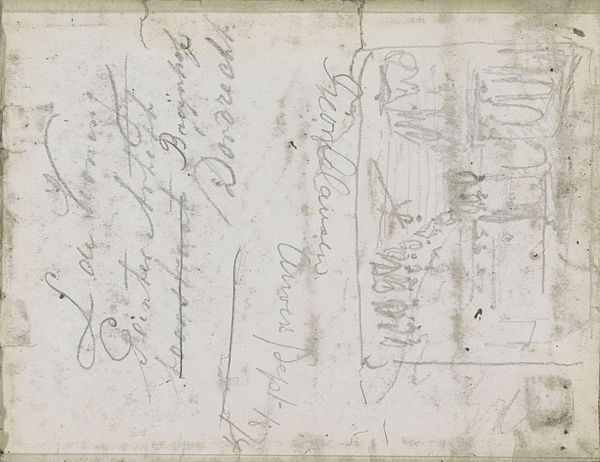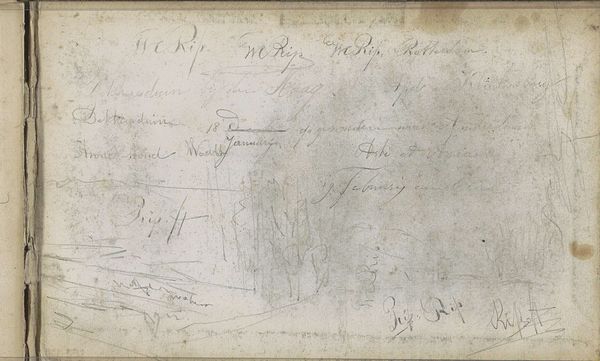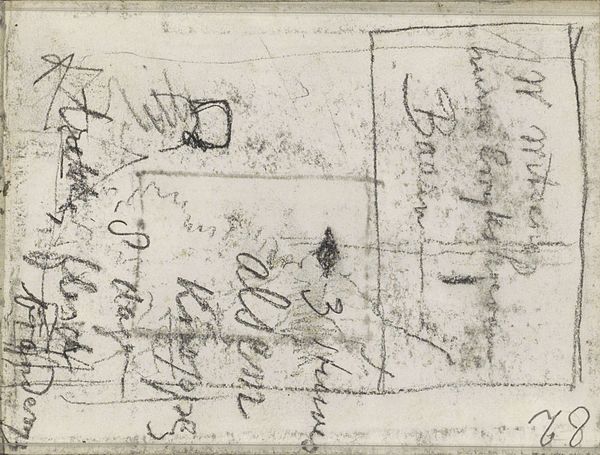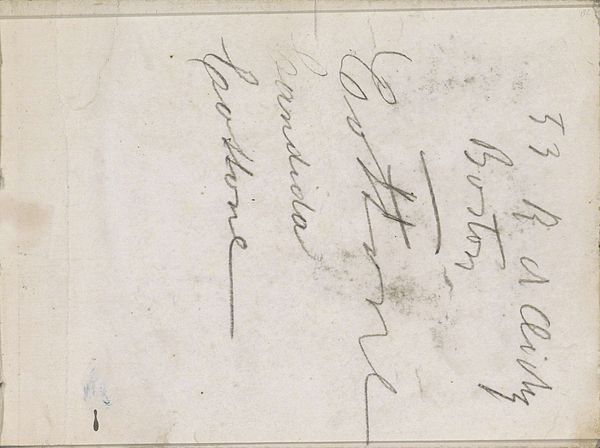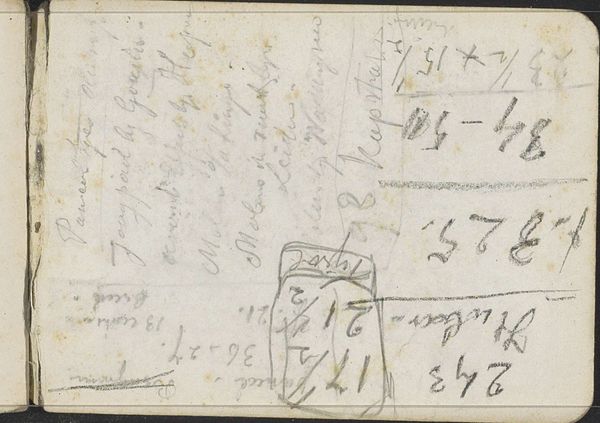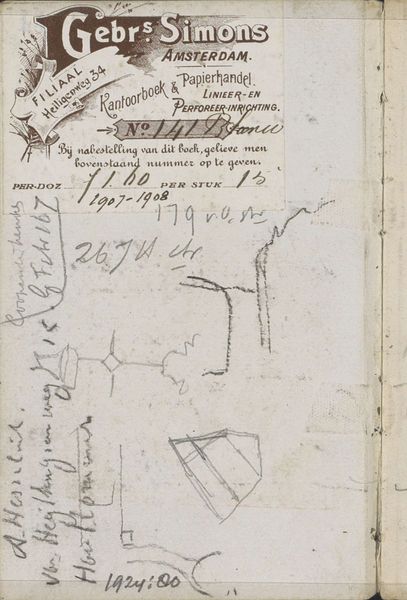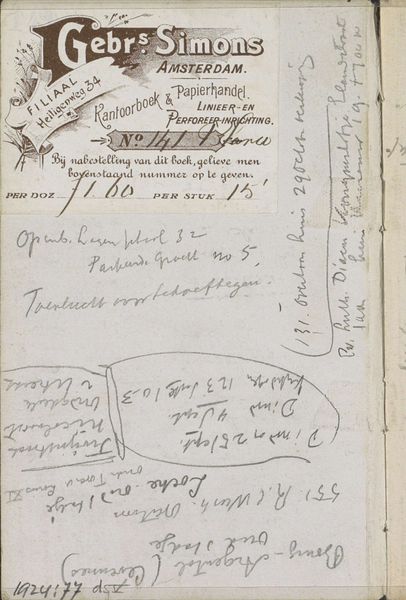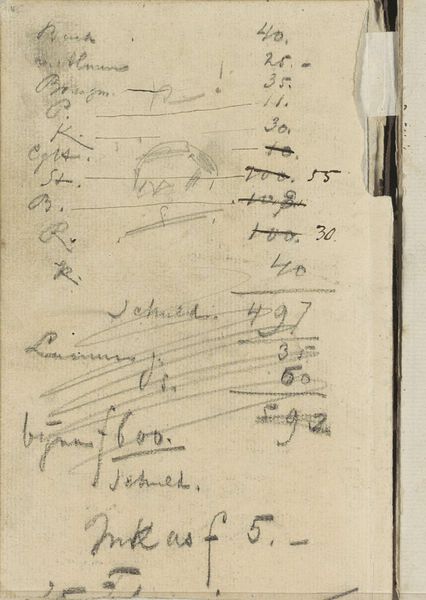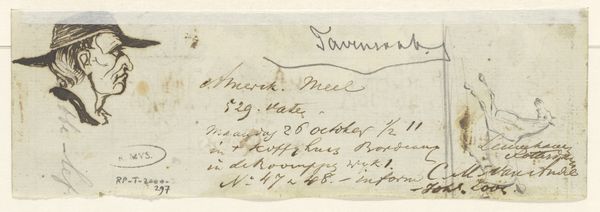
drawing, paper, ink
#
portrait
#
drawing
#
script typography
#
hand-lettering
#
playful lettering
#
hand drawn type
#
hand lettering
#
paper
#
ink
#
hand-drawn typeface
#
fading type
#
typography style
#
academic-art
#
sketchbook art
#
small lettering
Dimensions: height 177 mm, width 110 mm
Copyright: Rijks Museum: Open Domain
This drawing, likely made around the late 18th or early 19th century by Simon Andreas Krausz, presents us with an intriguing juxtaposition. A seemingly mundane inscription with numerical annotations fills the sheet, but beneath the surface, we find something deeper. The act of writing itself, the formation of letters and symbols, becomes a potent motif. Consider how the simple stroke of a pen can carry the weight of commerce, memory, and cultural transmission. These inscriptions, at first glance mere accounting, remind us of the power of record-keeping—a practice that stretches back to ancient civilizations, from cuneiform tablets to medieval manuscripts. In each instance, the written word serves not only as a practical tool but as a repository of human experience. This drawing prompts us to reflect on the cyclical nature of symbols. The shapes, the forms, the impulse to record—these elements reappear throughout history, evolving and adapting to new contexts while retaining a connection to our collective past. The numbers and words, seemingly straightforward, resonate with the echoes of countless human transactions, a testament to the enduring power of communication.
Comments
No comments
Be the first to comment and join the conversation on the ultimate creative platform.
